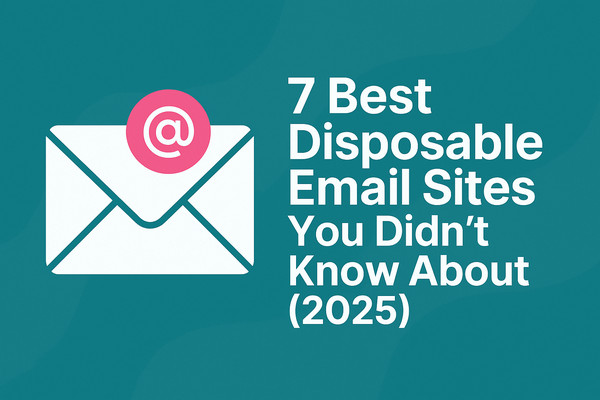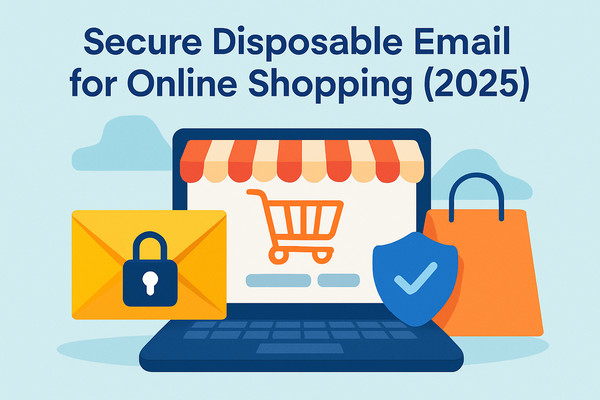How to Instantly Create a Facebook Account Without Using Your Real Email – The Trick They Don’t Want You to Know!”

Best Free Temp Mail For Facebook 2025-26 Want to join Facebook without giving away your real email? In this detailed, step-by-step guide, we reveal how to use temporary email addresses to create Facebook accounts in under 5 minutes—no signup, no spam, no strings attached. Discover the best free temp mail services, how to bypass Facebook’s detection system, and keep your digital identity private in 2025. Whether you’re a privacy-focused user, a marketer managing multiple profiles, or just tired of spam, this guide gives you everything you need to stay safe and anonymous online.
Free Temporary Email for Facebook – The Ultimate Guide
What is a Temporary Email?
Definition and Concept
Temporary emails, often called disposable or temp mail, are exactly what they sound like—email addresses that last for a short period of time. They’re usually created without needing to sign up or verify anything. Think of them like the paper plates of the internet. You use them once and toss them out.
They’re especially useful when you don’t want to use your real email address to sign up for a website or service. With temp mail, you can instantly generate a random inbox and receive emails for a limited time—usually between 10 minutes to a few hours. Once the time expires or you close the tab, the address vanishes into thin air.
These email addresses are often hosted by services that delete all stored data after a while, ensuring that no one—including you—can retrieve that information later. They’re completely anonymous and help users keep their real inboxes clean.
How It Differs from Regular Email
Unlike Gmail, Yahoo, or Outlook, temp emails don’t need any personal details. You won’t need to provide your name, phone number, or password. Most don’t require you to even click a button to register. It’s immediate, anonymous, and often free.
Here’s a quick comparison:
| Feature | Temporary Email | Regular Email |
|---|---|---|
| Requires Signup | ❌ No | ✅ Yes |
| Anonymity | ✅ Full | ❌ Limited |
| Spam Filtering | ✅ Avoids Spam | ❌ Spam Risk |
| Lifespan | 🕒 Short-lived | 🕒 Permanent |
| Cost | 💸 Free | 💸 Free/Paid Options |
In short, if you’re just signing up for something short-term—like testing a service or registering for Facebook temporarily—a temp email is the smarter, safer, and cleaner option.
Why Use a Best Free Temp Mail For Facebook?
Protecting Your Privacy
One of the biggest concerns people have today is digital privacy. Facebook collects a lot of data, and your email address is one of the gateways into that ecosystem. Using your personal email means opening the door to targeted ads, marketing emails, and possibly even data leaks.
A temporary email gives you a way out. It acts like a burner phone. You sign up, get the verification email, and you’re done. No strings attached. It’s perfect for users who are cautious about digital footprints or want to stay under the radar for any reason.
Even if you’re just curious about how Facebook works or want to test out features without linking your real identity, temp mail helps create a safe buffer. You can sign up, browse, and even message people—all without ever giving away your true contact information.
Avoiding Spam and Promotional Emails
Let’s be real. Once your email lands in Facebook’s system, it’s likely to be used for various forms of communication—notifications, updates, promotional campaigns, and more. And it’s not just Facebook. Advertisers and third-party services often get access, and your inbox starts filling up fast.
Temp mail completely blocks that problem. The address expires quickly, and you never have to worry about unsubscribing from newsletters or marking stuff as spam. It’s like setting your inbox to auto-clean mode.
If you’ve ever regretted signing up for a site because your inbox got flooded, you’ll immediately understand the appeal.
Creating Multiple Accounts Easily
Sometimes you need more than one Facebook account—maybe for business, testing, gaming, or even creating fan pages. Facebook does allow multiple accounts, but it requires a unique email for each.
Temporary emails are your best friend in this scenario. With just a few clicks, you can generate a new email, create a new Facebook profile, and move on. No need to manage dozens of email accounts. It’s fast, efficient, and practical.
For developers, marketers, and even gamers who run multiple personas or pages, temp mail is a game-changer. You can keep everything separate and clean without breaking any rules.
Is It Legal and Safe to Use Temp Mail on Facebook?
Facebook’s Policies on Temporary Emails
Technically, Facebook doesn’t ban temporary emails outright, but it frowns upon using fake or misleading information during sign-up. If you’re using a temp email to create a legitimate account, you’re usually in the clear.
However, if you’re using temp mail to bypass bans, create spam accounts, or engage in malicious activity, you could get flagged. Facebook has filters in place to detect unusual behavior, and accounts made with known temp mail domains may be scrutinized.
So if you’re using temp mail to protect your privacy or test features, you’re safe. Just don’t use it to break the rules or cause trouble.
Legal Considerations
There’s no law that says using temporary emails is illegal. They exist for privacy and convenience, and many legitimate users rely on them daily.
However, what you do with that email matters. If you’re using it to impersonate someone, scam others, or conduct illegal activities, then you’re on the wrong side of the law—not because of the email, but because of your actions.
Always stay ethical. Use temporary mail for privacy, convenience, and testing—not deception.
Security and Privacy Risks
While temp emails are great for avoiding spam and tracking, they do come with some risks:
-
Public Access: Many temp mail services don’t secure inboxes. Anyone with your generated email can see incoming messages.
-
No Recovery Options: Once the email expires or the tab is closed, you can’t retrieve any lost information.
-
No Two-Factor Authentication: You won’t be able to secure your Facebook account with added protection using temp mail.
In short, use temp mail when you’re okay with one-time access. Don’t tie anything important or personal to it.
Read More:-
- Stop Using Your Real Email! Discover the Genius Gmail Trick Everyone’s Talking About
- This Free Temp Mail Tool Is Saving Users from Spam – Find Out How!
Best Free Temporary Email Providers
TempMail
One of the most popular names in the disposable email world, TempMail is fast, free, and user-friendly. You land on the site, and a temporary email is ready for use. No clicks. No signups.
Features:
-
Simple interface
-
Auto-refresh inbox
-
Supports attachments
-
Mobile app available
Guerrilla Mail
Guerrilla Mail is known for its reliability and custom domains. You can even create your own address prefix.
Features:
-
1-hour lifespan
-
Custom usernames
-
Inbox history
-
Supports attachments
10 Minute Mail
As the name suggests, you get an email that lasts 10 minutes—enough to sign up for Facebook and get your verification email.
Features:
-
Timer can be reset
-
Super fast and anonymous
-
Very lightweight and quick
EmailOnDeck
Great for speed and ease. It’s designed for professionals and regular users alike.
Features:
-
Easy interface
-
High speed email generation
-
Supports multiple domains
ThrowAwayMail
ThrowAwayMail offers longer durations for temporary addresses and a cleaner interface for email reading.
Features:
-
48-hour lifespan
-
Randomized email generation
-
Secure and private
How to Use a Temporary Email to Sign Up for Facebook
Step-by-Step Guide
-
Visit a Temporary Email Website
Go to TempMail, 10 Minute Mail, or Guerrilla Mail. -
Copy the Generated Email
A random email address will be displayed. Copy it to your clipboard. -
Go to Facebook.com
Click on “Create New Account.” -
Fill Out the Signup Form
Use the temp email instead of your real one. Fill in other details as needed. -
Check the Temp Mail Inbox
Switch back to the temp mail tab and wait for the Facebook verification code. -
Verify the Account
Copy the code from the email, return to Facebook, and complete the verification process. -
Done!
You now have a working Facebook account using a temporary email.
Tips for a Successful Signup
-
Avoid reloading the temp mail page excessively—it may lose the current inbox.
-
Don’t close the tab until you receive and use the verification code.
-
If you don’t see the email, wait 1-2 minutes or regenerate a new address.
How to Maintain Your Facebook Account with a Temporary Email
What Happens If the Temp Mail Expires?
Using a temporary email for Facebook is great during the initial signup phase, but what happens if you lose access to it? That’s the catch. Most temp mail services don’t store your data beyond a short window. Once it’s gone, it’s gone. If Facebook ever requires re-verification—say, for password recovery or suspicious login detection—you won’t be able to access that old inbox.
That’s why it’s crucial to decide from the beginning how long you plan to use the account. If it’s just for testing or short-term use, no worries. But if it’s going to be your second account for community groups, gaming, or marketing, consider linking a backup email or phone number later.
One smart move? After creating the account and verifying it, switch the email to a secondary permanent one. You’ll still protect your main inbox, but you won’t risk losing access entirely.
Avoiding Facebook Detection and Account Bans
Facebook’s system is smart. It scans for suspicious behavior and patterns, especially for accounts created with disposable emails. Here’s how to stay off their radar:
-
Avoid rapid-fire friend requests – Looks spammy.
-
Fill out your profile – Add a photo, a few interests, and maybe a couple of posts.
-
Don’t use VPNs excessively – Sudden location jumps can trigger alerts.
-
Verify with a phone number – This adds legitimacy.
-
Interact genuinely – Like, comment, and follow pages naturally.
Basically, make your account look and behave like a real user, even if it was born from a temporary email.
Managing Login Credentials
Because temporary emails vanish, it’s extra important to store your login credentials safely. Consider using a password manager to track usernames, passwords, and linked emails. Tools like Bitwarden, LastPass, or even Google Password Manager can help you remember which temp email was used with which account.
Also, write it down somewhere if you’re not planning to log in regularly. It sounds simple, but forgetting the details of a temp email-linked account is one of the most common reasons users lose access.
Alternatives to Temporary Emails for Facebook
Using Alias Emails
If you want more control and longevity, consider using email aliasing. Providers like Gmail allow you to create email variants using the “+” symbol. For example:
This still sends everything to your main inbox, but you can filter it easily or track where your email is being used. It’s a semi-disposable method—great for separating accounts without losing access.
Burner Email Services with Longer Lifespans
Some services like ProtonMail or Tutanota offer privacy-focused, longer-lasting emails you can use as semi-permanent throwaways. These aren’t exactly temporary, but they’re easy to manage and create.
-
ProtonMail – Encrypted, secure, and doesn’t ask for personal info.
-
Tutanota – Great UI and focused on anonymity.
These are ideal for users who want to keep an account longer but still shield their main identity.
Fake Email Generators to Avoid
Some websites claim to offer fake or “free Facebook verified emails.” Steer clear. These often include reused addresses or emails flagged by Facebook already. Best-case scenario, they don’t work. Worst-case, your data gets stolen.
Always use trustworthy, open-source, or well-reviewed services. Never download anything from sketchy temp mail websites.
Best Practices When Using Temporary Emails
Don’t Use for Sensitive Communications
Temporary emails are public, short-lived, and often shared between users. Never use them for:
-
Banking
-
Medical accounts
-
Private conversations
-
Work-related emails
Keep your important stuff locked down with secure, long-term accounts.
Set a Time Limit for Your Account
If you’re creating a Facebook account with temp mail, define its purpose early. Are you:
-
Testing features?
-
Running a short-term campaign?
-
Creating a backup admin account?
Knowing your goal lets you manage the account accordingly—especially since you won’t get password reset options later.
Clear Cache and Use Incognito for Extra Anonymity
If your goal is complete anonymity (say, for testing or research), don’t just stop at temp mail. Use your browser’s incognito mode, clear cookies regularly, and use a VPN with a consistent IP. This avoids Facebook’s tracking via browser fingerprints or IP logs.
Conclusion:
Temporary emails are a powerful tool for creating Facebook accounts quickly, safely, and anonymously. Whether you’re a digital nomad, privacy freak, or just someone tired of spam, temp mail gives you the freedom to use platforms like Facebook without handing over your personal data.
But with great power comes great responsibility. Don’t use these tools for spam or deception—they’re best used ethically, for privacy protection, testing, or learning.
By choosing the right temp email provider, following best practices, and staying aware of the limitations, you can enjoy all the benefits of Facebook without any of the digital baggage.
FAQs
1. Can I use a temp email to recover my Facebook account later?
No. Most temp mails don’t support long-term access. You won’t be able to recover your account once the email expires.
2. Will Facebook block accounts made with temporary emails?
Not always. But if the platform detects spammy behavior, your account may get flagged or banned. Use temp mail wisely.
3. Can I add a phone number to a Facebook account created with a temp email?
Yes! And it’s recommended if you plan to use the account long-term. It helps with verification and recovery.
4. Are there temp email providers that offer longer lifespans?
Yes. Services like ThrowAwayMail offer up to 48 hours. Others like EmailOnDeck may provide more control and access.
5. Is it possible to switch from temp mail to a real email later?
Absolutely. Once your Facebook account is verified, go to settings and update your email to a more permanent one.





